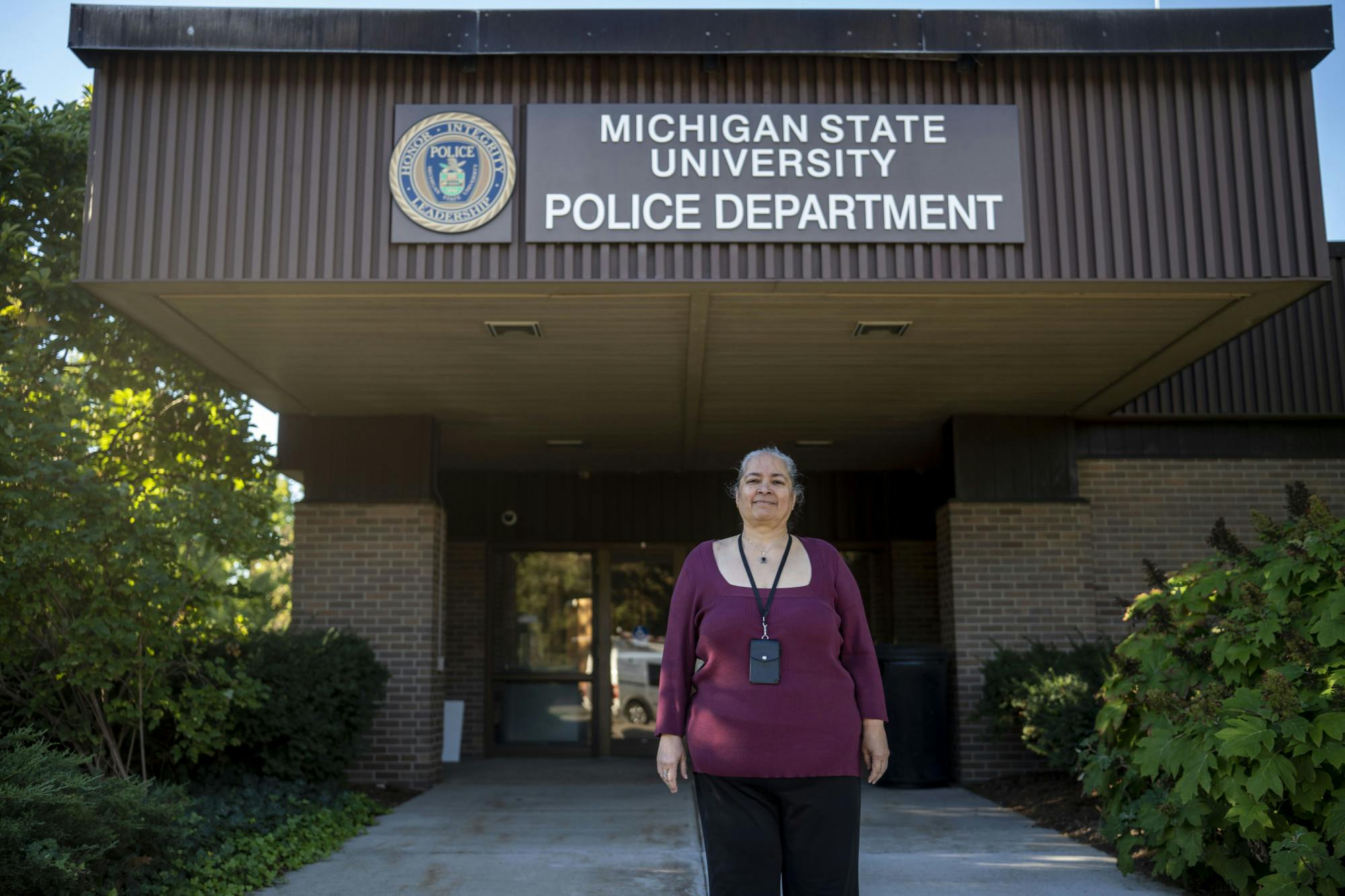When Maria Valayil was hired by the Michigan State University Department of Police and Public Safety as their police social worker in Fall 2022, she felt she had a good picture of what the job would ask of her on a day-to-day basis.
Valayil, a two-time graduate of MSU and former victim advocate in the prosecutor’s office, said she knew what her role would look like and where she would fit in the community.
Valayil said no one goes into a job expecting a mass shooting, but she said skills and experiences from her prior jobs were something she relied on while she helped the campus works its way through the mass shooting of Feb. 13.
“That work is never comfortable," Valayil said. "You hope you never have to do it again."
Valayil said her unit at DPPS is focused on mental wellness, community safety and giving people access to resources in times of crisis. On Feb. 13, she was called in to assist at the reunification center at the MSU Pavilion.
Valayil arrived just before midnight and said the Pavilion was tense. She knew there were families coming that hadn’t heard from their students, hoping they would hear something or be unified.
She said the most profound part of working in the reunification center was sitting with the families who were still waiting.
“The longer they waited, the more we were all aware that their students could be on that list,” Valayil said.
Later that night, employees of DPPS made death notifications and families were called into a private part of the Pavilion.
“We were there to support the students and families that were there as best we could until we got official word,” Valayil said. “I was so focused on being present with the people there and giving them 100%, whatever I could do for them. Listen, talk.”
After Feb. 13, Valayil said the important part of her role has been connecting people with services being offered to survivors of a traumatic event throughout the community.
DPPS, Valayil said, is still responding to professors' requests for wellness checks on students they have yet to hear from or see in class.
Valayil said it’s not anyone’s place to judge how a person processes their trauma, but that she will meet them where they are and connect them with accessible resources to meet their needs.
“When you’re feeling trauma, you’re just shutting down," Valayil said, "You’re not reading your email … you’re just trying to cope where you feel the safest."
Whether that means not feeling comfortable to come back to campus, or they don’t want to walk to their dorm in the dark from their parking lot, or needing other accommodations, Valayil said her job is to find the appropriate resources.
Additionally, she’s been in touch with some of the families of those students who were injured or died in the shooting.
Valayil said DPPS is working with these families to provide support for medical bills or places for the families to stay while their students are in rehab.
“As a victim advocate, we can never be satisfied,” Valayil said.
DPPS communications manager Dana Whyte said that the department is grateful to have Valayil filling this role for her unique perspective and how she puts people first.
“She’s among one of the first people to talk to survivors and victims and come to them ... from a place of sincerity,” Whyte said. “We’re not just here to enforce laws, we’re here for you and we care about you and Maria is able to, firsthand, give that experience.”
Support student media!
Please consider donating to The State News and help fund the future of journalism.
Valayil said the normalization of active shooter drills and security guards walking the halls creates a very different academic culture than what she experienced in her inner-city Detroit school growing up before safety precautions to prevent violence in schools were implemented.
“I grew up in a city that has a lot of violence, so I always took precautions,” Valayil said. “Personally, I understood it. But institutionally, we just didn’t have that in school.”
She is encouraged and grateful for the people that accepted the support she has had to offer since she started at DPPS. Since the shooting happened, Valayil said social workers at other universities have asked her about her experience and what the department has learned.
“I stand ready to help with any event that I can," Valayil said. "You hope that it never happens again, but I’ve been glad to talk with people about what we did that worked well."
She said that as the social workers at other universities and colleges have asked for advice, they’ve also acted as a support network for her.
“I (am never) the stoic person who pretends like it didn’t impact me ... You have to model the healthy things that you want other people to feel safe to experience themselves,” Valayil said. “We are all going to be working through this for some time, everybody in their own way. People need grace and space to try to understand each person’s unique needs.”
Discussion
Share and discuss “MSU police social worker Maria Valayil discusses her role after mass shooting” on social media.







